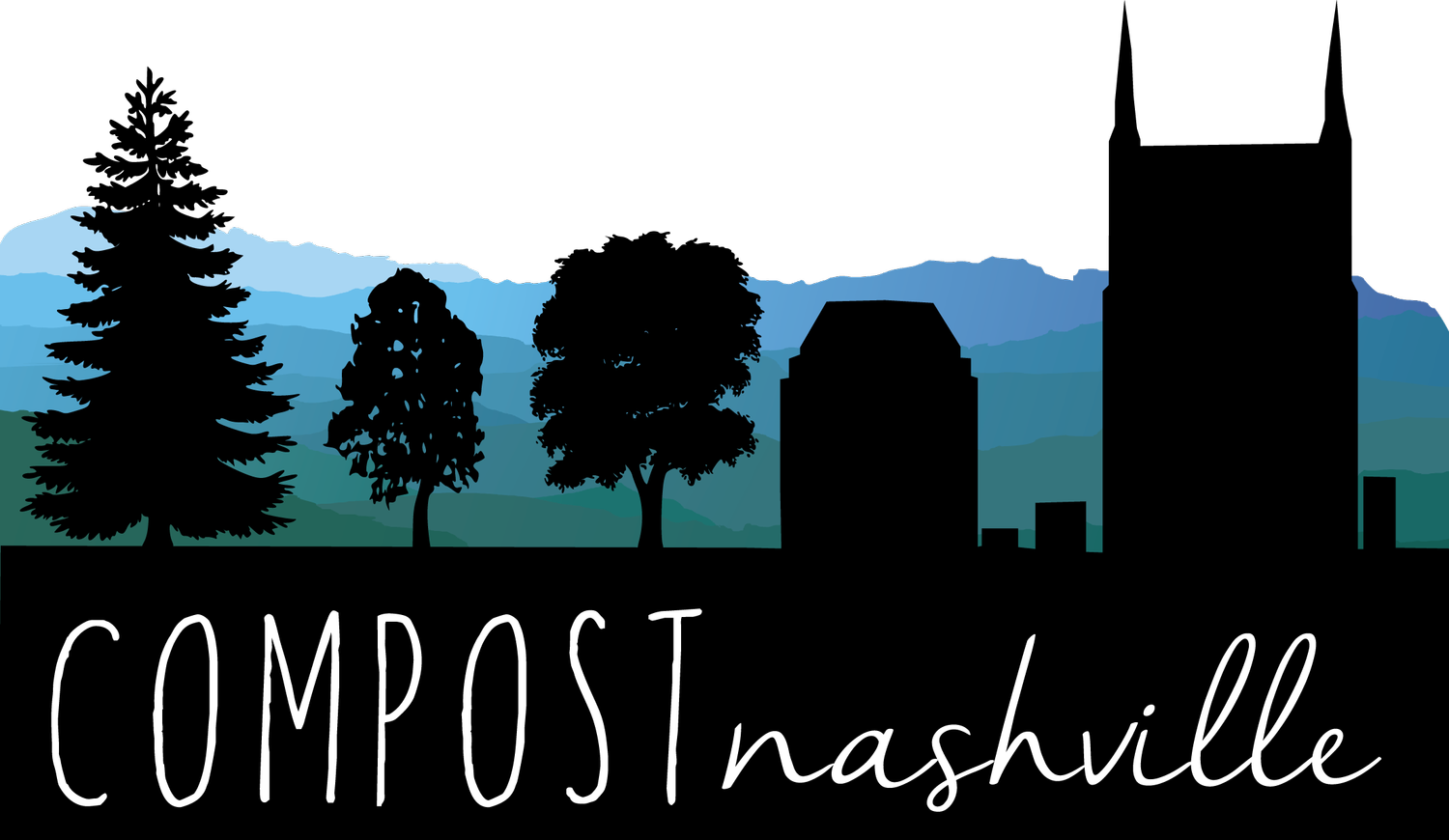Implementing a Composting Program at Work: 5 Easy Steps
Composting your food waste from your office is one of the easiest, most sustainable initiatives you can begin at work. It’s straightforward, data-driven, and has immediate impact. As a low-cost, high-impact program – diverting your food waste from the landfills and towards sustainability should be on the top of your list of sustainability goals and prioritized in your company’s budget.
Here’s a brief how-to guide based on almost a decade of experience helping clients in Nashville.
Step 1: Assemble the Green Team
The first thing you’ll want to do is to put together a “green team” of co-workers that care about sustainability. This will make the other steps much easier and also way more fun.
Step 2: Research & Explore:
Reach out to your local composting companies to better understand the material they accept.
Identify the areas in your office that create compostable waste. In small to medium offices this will be the break rooms where people grab coffee and eat lunch. Larger offices will have an entire kitchen that serves lunch. In this case you’ll want composting bins in the kitchen and in the area in which people take their trays and discard their containers and unwanted food.
In these areas choose which composting container works best in your office. Some offices have built-in countertop with trash and recycling which means you’ll just have to choose a spot for compost and add signage. You’ll also want to use compostable bags to line those bins. Other offices may not have that. In this case it’s best to use a 13 gallon step container that is plainly labeled. Some composting companies will even provide signage, bags, and bins for you:
Step 3: Estimate how much compostable waste your organization will create on a weekly basis.
The best way to do this is to do a one or two day waste audit. Communicate to your co-workers that you’ll be conducting a waste audit. Set up a container in the areas you identified in step 2 and encourage your co-workers to throw their left over food and compostable containers into your special container.
Good signage and even a volunteer from your green team during the busy times will help ensure proper waste diversion. At the end of the day, you can approximate the weight of the waste based on the size of the container it is collected in. Multiply that amount by the number of days in a week to estimate how many gallons you would produce.
Step 4: Determine a compost collections partner
You’ll provide them with your address and weekly estimates from your waste audit and they’ll be able to give you a quote. They will usually want to see your loading dock or dumpster area to help determine the best location for the compost bins.
If you’re in the Nashville area, reach out to us at www.compostnashville.org and request a quote. We’ll come out to do a complimentary site visit, provide tips on what has worked best for our clients, and even do a staff training when you start service. We’ll provide you and your green team with real-time impact reports showing off your efforts.
Step 5: Launch your composting initiative!
Once you have your bins and your team is trained, you’re ready to start composting! The programs with the most success include composting program details in their onboarding documents to make sure all current and new employees are on board. With the help of your composting partner to answer questions about what can be composted, gather data, and clean your bins – you’re sure to have a successful program.
Additional Tips:
Be Patient: New habits take time to form. You and your green team will want to set up proper expectations for your new initiative. Compost Nashville is happy to provide extra training as needed to ensure everyone is on the same page. Hosting one-time events like a pumpkin drop off can also be a great way to get people into the composting spirit.
Display your results: During quarterly meetings share your diversion metrics with your company. We’re all goal-oriented and people love seeing results. Compost Nashville provides real-time diversion metrics in your user portal as well as easy-to-display annual reports.

